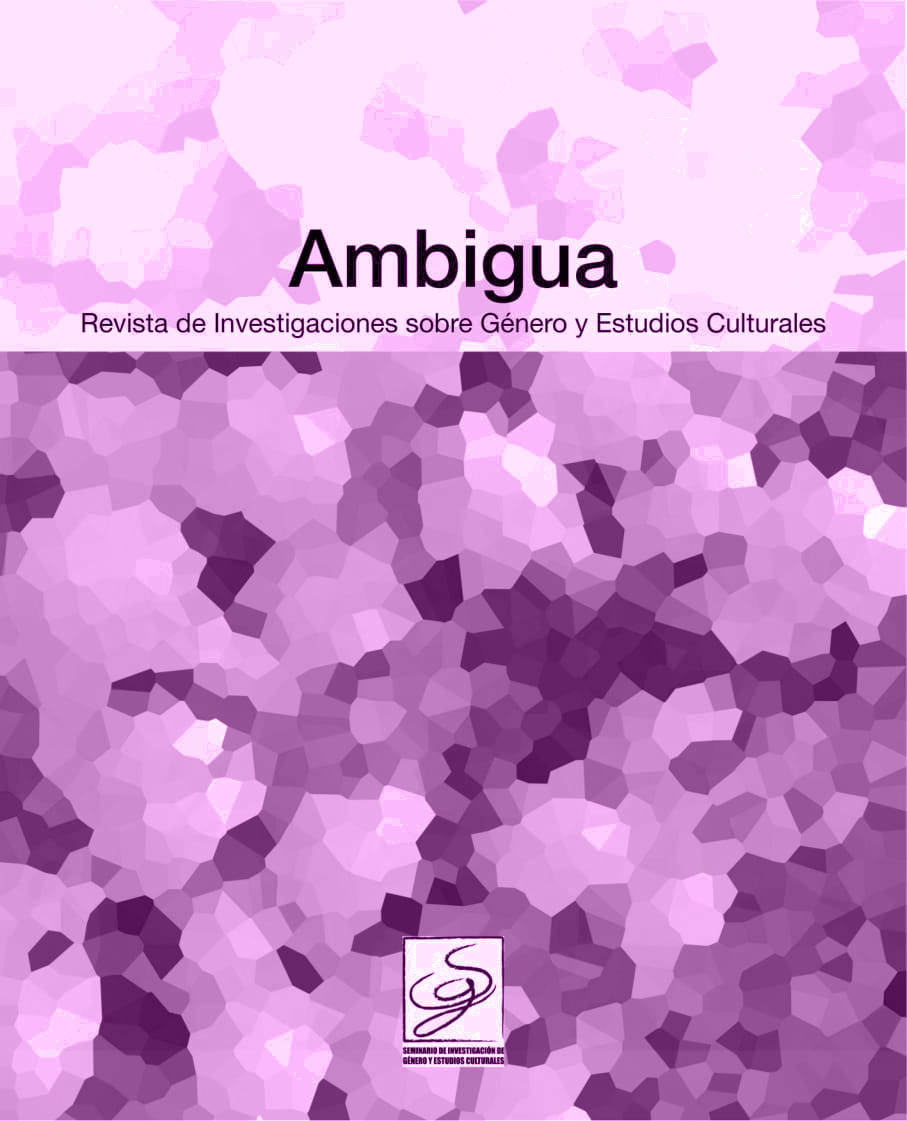Música para una venganza. Racismo, violación y asesinato
el caso de El último tren de Gun Hill (John Sturges, 1959)
DOI:
https://doi.org/10.46661/ambigua.5007Palabras clave:
Mujer, Dimitri Tiomkin, Western, Música de cine, Cine, Venganza, ViolaciónResumen
El western del director americano John Sturges, El último tren de Gun Hill (1959), cuenta la historia de la venganza de un hombre por la violación y asesinato de su mujer, perteneciente a una tribu de indios norteamericanos. En él, la música compuesta por Dimitri Tiomkin -en su tercera colaboración con el cineasta- juega un papel fundamental a la hora de configurar la narrativa. Para ello, el compositor utiliza de nuevo el sistema monotemático que tanto éxito le reportara en la década de los cincuenta y en el anterior western dirigido por Sturges, Duelo de titanes (1957), convirtiéndolo en referente de la música cinematográfica del género del Oeste desde su trabajo en Solo ante el peligro (Fred Zinnemann, 1952). A través del análisis musical de la partitura y el guion, y de su comparación con la música de otras dos películas en las que el compositor se enfrentó musicalmente al tema de la violación, se comprueba como la totalidad de la partitura de El último tren de Gun Hill pone voz a la mujer ultrajada, siendo ella la que guía, a través de las diferentes características y variaciones del tema principal, las acciones del protagonista masculino. De esta forma, se confirma la capacidad de Dimitri Tiomkin para resaltar a los personajes femeninos de sus películas, ya sean estos secundarios o protagonistas; así como la posibilidad de tratar cuestiones tan graves como la violación, el asesinato, la venganza e incluso el racismo, desde diferentes puntos de vista a través de la música cinematográfica.
Descargas
Citas
AGUILAR Moreno, José María. El cine y la metáfora. Sevilla: Ediciones Renacimiento, 2007.
ALEJÁNDREZ, Valentín J, Gorka Magallón, Ignacio Bisbal Grandal & Rubén Miguel Pereña. La obra civil y el cine: una pareja de película. Madrid: Cinter Divulgación Técnica, 2005.
BROUGHTON, Lee.The Euro-Western: reframing gender, race and the 'other' in film. London: I.B. Tauris, 2016.
BUSCOMBE, Edward (ed.). The BFI companion to the Western. New York: Atheneum, 1988.
FULOP, Rebecca Naomi. “Dames, and damsels in distress: constructing gender types in classical Hollywood film music”. Ph. D. diss., University of Michigan, 2012.
GEVINSON, Alan, ed. Within Our Gates: Ethnicity in American Feature Films, 1911-1960. Los Angeles: University of California Press, 1997.
GORBMAN, Claudia: “Scoring the indian: music in the liberal Western”. En Western music and its others: difference, representation, and appropriation in music, Georgina Born y David Hesmondhalgh (eds.), 234-253. Los Angeles: University of California Press, 2000.
GUBERN, Román. Historia del cine. Barcelona: Lumen, 1995.
HELLER-NICHOLAS, Alexandra. Rape-Revenge films: a critical study. North Carolina: McFarland & Company, 2011.
HENRY, Claire. Revisionist rape-revenge: redefining a film genre. New York: Palgrave MacMillan, 2014.
HILGER, Richard. Native Americans in the movies. Portrayals from silent films to the present. Maryland: Rowman & Littlefield, 2016.
KALINAK, Kathryn. Settling the Score: Music and the Classical Hollywood Film. Madison: University of Wisconsin Press, 1992.
LAING, Heather. The gendered score. Music in 1940s melodrama and the woman’s film. Hampshire: Ashgate, 2007.
LENIHAN, John H. Showdown: confronting modern America in the Western film. Chicago: University of Illinois Press, 1985.
MARUBBIO, M. Elise. Killing the Indian maiden: images of Native American women in film. Kentucky: The University Press of Kentucky, 2006.
MEYER, Leonard B. La emoción y el significado en la música. Madrid: Alianza Editorial, 2005.
PÉREZ García, Lucía. “Dimitri Tiomkin y la música del western (1940-1967). Análisis de las contribuciones de un compositor europeo a un género cinematográfico genuinamente americano”. Tesis Doctoral, Universidad de Sevilla, 2017.
POIGER, Uta G. Jazz, rock, and rebels: cold war politics and American culture in a divided Germany. Los Angeles: University of California Press, 2000.
PROJANSKY, Sarah. Watching rape: film and television in postfeminist culture. New York: New York University Press, 2001.
READ, Jacinta. The new avengers: feminism, feminity and the rape-revenge cycle. Manchester: Manchester University Press, 2000.
RUSS, Patrick; Henning, Paul & Sherk, Warren. Dimitri Tiomkin. Anthology. Milwaukee: Hal Leonard, 2008.
RUSSELL, Dominique. Rape in art cinema. New York: Bloomsbury Publishing USA, 2011.
TIOMKIN, Dimitri. “Composing for films”. Films in Review, 2.9 (1951) pp. 17-22
TIOMKIN, Dimitri y Buranelli, Prosper. Please don´t hate me. New York: Doubleday & Company, 1959.
WHITMER, Mariana. Jerome Moross's The big country: a film score guide. Maryland: Scarecrow Press, 2012.
WRIGHT, Will. Six guns and society: a structural study of the Western. Los Angeles: University of California Press, 1975.
Descargas
Publicado
Cómo citar
Número
Sección
Licencia
Derechos de autor 2020 Lucía Pérez García

Esta obra está bajo una licencia internacional Creative Commons Atribución-NoComercial-CompartirIgual 4.0.
Las autorías que publican en esta revista están de acuerdo con los siguientes términos:
- Los autores conservan los derechos de autor y garantizan a la revista el derecho de ser la primera publicación del trabajo al igual que licenciado bajo Licencia Creative Commons Atribución-NoComercial-CompartirIgual 4.0 Internacional la publicación inicial en esta revista: Attribution-NonCommercial-ShareAlike 4.0 International (CC BY-NC-SA 4.0)
- Las autorías pueden establecer por separado acuerdos adicionales para la distribución no exclusiva de la versión de la obra publicada en la revista (por ejemplo, situarlo en un repositorio institucional o publicarlo en un libro), con un reconocimiento de su publicación inicial en esta revista.
- Se permite y se anima a las autorías a difundir sus trabajos electrónicamente (por ejemplo, en repositorios institucionales o en su propio sitio web) antes y durante el proceso de envío, ya que puede dar lugar a intercambios productivos, así como a una citación más temprana y mayor de los trabajos publicados (Véase The Effect of Open Access) (en inglés).
- Esta revista no cobra por publicar, es decir, no tiene APC's (the journal does not have article processing charges)
- Esta revista tampoco cobra ninguna tasa por el envío/presentación de trabajos (the journal does not have article submission charges)









